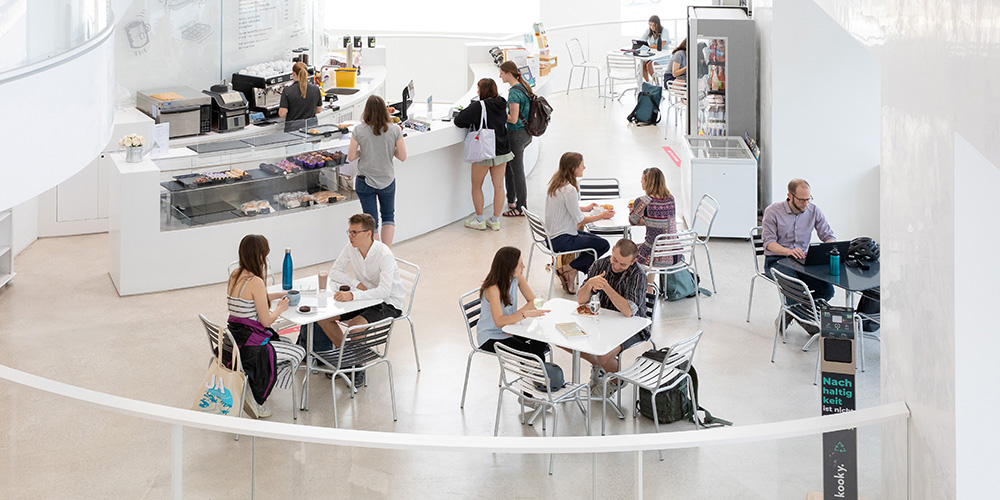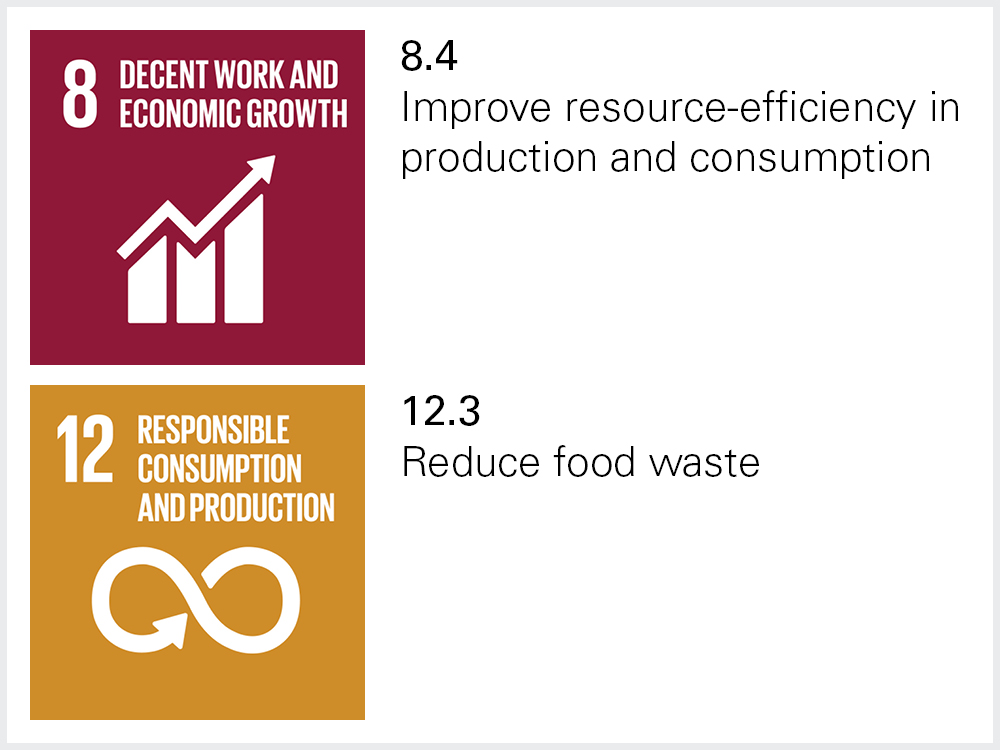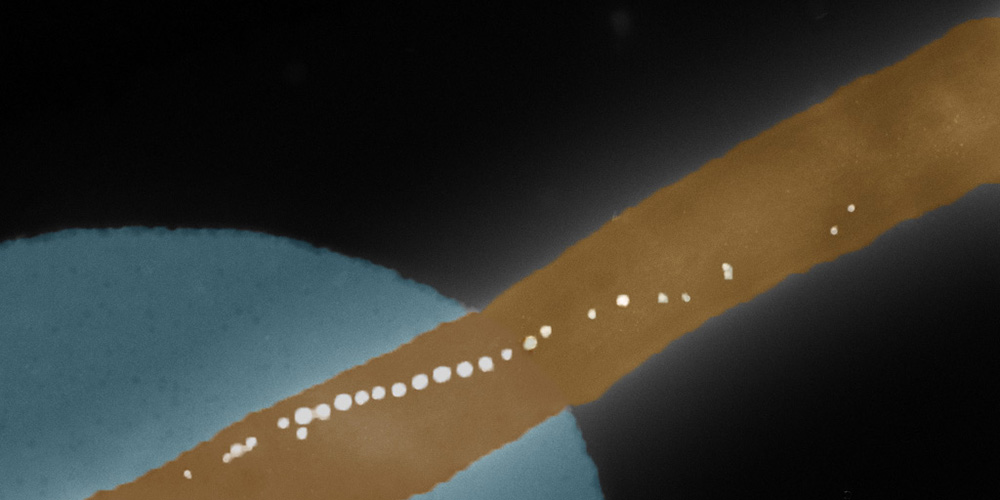Catering

Despite limitations created by the pandemic and restructuring, important steps were taken in 2021-2022 to make university catering more sustainable. One example is a test month in spring 2022 in which vegetarian and vegan dishes were priced differently than non-vegetarian dishes. The experiment was very well-received. Overall, the proportion of vegan and vegetarian dishes offered was above 50% across all food service locations. Since fall 2022, there has also been a sustainable alternative to disposable cups on campus.
Restructuring of catering operations
Due to the pandemic, operations continued to be closed for parts of 2021, so monitoring of sustainability measures was not possible in all areas. An additional complication was added by the restructuring of catering operations in summer 2022, which meant that three companies were now involved in catering at university locations.1 In order to continue advancing sustainability issues in catering, the 2022 tender for operating university catering services from summer 2023 onwards placed a high value on sustainability, including criteria for strict monitoring of greenhouse gas emissions, seasonality of ingredients and measures for reducing food waste.
Test month with reduced-cost vegetarian and vegan dishes
In May 2022, university catering ran a test month in which vegetarian and vegan dishes were priced differently from dishes containing meat. During that month vegetarian and vegan dishes were offered at a lower price than alternatives containing meat. Over 900 members of the university participated in a survey after the experiment ended. The results of the survey showed that the test month was well-received. A majority (69%) of the respondents were in favor of retaining the price difference after the end of the test phase and expressed a high to very high level of willingness to pay more for sustainable food (70%). This provides support for the current plan to continue moving toward more sustainability in the catering operations.
Introduction of new cups to-go
Since fall 2022, the University of Basel has had a new deposit system for cups to-go. Coffee and other beverages can now be taken along in kooky cups in exchange for a deposit. They can be easily returned at the numerous return boxes found not only on campus, but also in other areas of the city, for example at the Basel SBB Railway Station. The deposit is then credited back via an app. This system makes it easier to avoid using disposable cups.
Reduction in greenhouse gas emissions
Due to pandemic-related closures, the total greenhouse gas emissions in 2021 in the area of catering were unusually low, at a total of 224 t CO2-eq. Despite normalization of operations in 2022, greenhouse gas emissions remained much lower (443 t Co2-eq2) than in 2019, before the pandemic (725 t CO2-eq).
Further expansion of sustainable catering options
Despite challenging circumstances, the various operators engaged in several activities and measures to promote a more sustainable product range. Altogether, the proportion of vegan and vegetarian options was over 50% of the dishes offered in all food services locations. In the Bernoulli cafeteria, which is operated by the ZFV, only vegan and vegetarian dishes have been served on Wednesdays since summer 2022. Once a week it also offers leftovers. In the facilities operated by the SV Group, the percentage of goods shipped by air dropped to 0.01%. The percentage of certified meat rose to 72% in 2021 and to 80% in 2022. The percentage of certified fish (MSC/ASC) was at 96% in 2021 and 93% in 2022.
Goals & actions
Continue to expand the range of sustainable products
Increase sales of vegan and vegetarian menus by expanding the product range and making it more attractive
Catering Office
Sustainability Office
Reduce catering-related greenhouse gas emissions
Communicate CO2 emissions per meal and other sustainability numbers at catering locations in order to raise awareness among guests
Catering Office
Sustainability Office
Reduce catering-related waste
Successively increase number of drinking water dispensers in buildings with high student and staff use in order to reduce use of PET and plastic bottles
Catering Office
Continue to expand the range of sustainable products
Expand the range of sustainable products by increasing the number of certified label products (at least 70% ASC/MSC for fish and seafood, 50% BTS/RAUS for beef/pork, 100% BTS RAUS for veal)2
SV Group
Sustainability Office
Reduce catering-related greenhouse gas emissions
Develop a new monitoring system for evaluating the percentage of vegan/vegetarian menus and greenhouse gas emissions caused by catering2
SV Group
Sustainability Office
[1] Whereas the restaurant BaCell’s, the Biozentrum Kaffi and the cafeteria in the University Library continue to be operated by the SV Group, the catering operations in Bernouillistrasse and in the Kollegienhaus (main building) have been run by the ZFV since summer 2022. The cafeteria La Strada in the Faculty of Business and Economics has been operated by Rüstzeug GmbH since mid-October 2022.
[2] Due to the retendering of the catering operations from summer 2023, the actions related to catering have been redefined.


